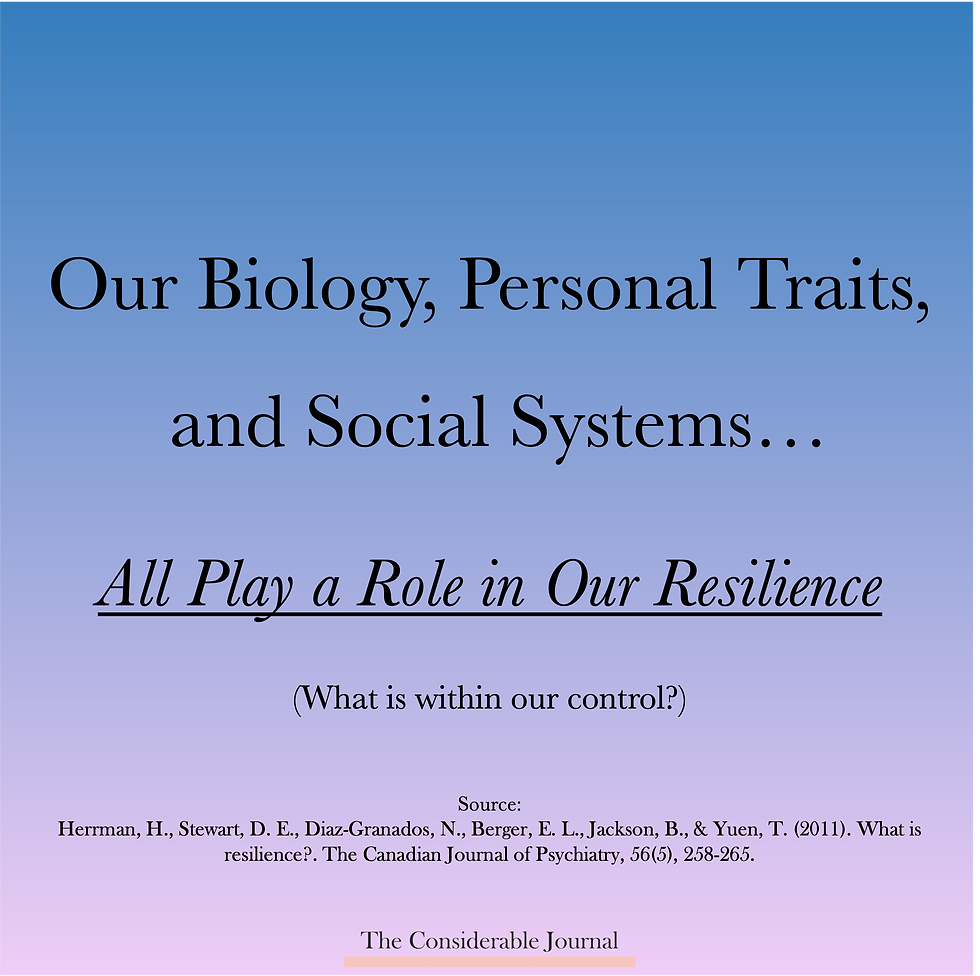Feeling Connected to Nature Relates to Higher Well-Being
- Considerable Journal
- Sep 9, 2022
- 2 min read
Updated: Mar 11, 2023

How connected do you feel with nature?
The term "nature connectedness" refers to a person's subjective sense of their relationship with the natural world.
Pritchard and her colleagues studied the relationship between nature-connectedness and well-being in a recent meta-analysis.
These researchers wanted to study two aspects of well-being: hedonic ("feeling good") well-being and eudaimonic ("life well lived") well-being. For this purpose, they conducted two meta-analyses to study this relationship for each of the two aspects of well-being.
Reminder: a meta-analysis is a statistical analysis that combines the results of multiple scientific studies.
The investigators searched several databases to find studies from 1999 to 2016 about the relationship between nature connectedness and either of the two aspects of well-being. Most of these studies measured the participants' self-reported nature connectedness and either their hedonic ("feeling good") or eudaimonic ("life well lived") well-being levels. The results of twenty-five studies were statistically analyzed.
The data showed that nature connectedness related positively to both aspects of well-being. This means that the participants who reported greater connection to nature experienced higher levels of both aspects of well-being.
Even though there was a positive correlation between nature connectedness and both aspects of well-being, nature connectedness was more strongly associated with the hedonic ("feeling good") aspect of well-being.
The researchers found that self-reported personal growth was greatly related to the relationship between nature connectedness and eudaimonic ("life well lived”) well-being. "Individuals who are more connected to nature tend to have greater eudaimonic well-being, and in particular have higher levels of self-reported personal growth" (Pritchard et al, 2020).
One of the conclusions of this meta-analysis was that "individuals who are connected to nature are more likely to flourish and function well psychologically" (Pritchard et al, 2020).
Editor's note: It is relevant to note that nature connectedness can be nourished, the same way most relationships can! Living in a highly natural space is not a requirement for nature connectedness. If you live in an urban environment, it might seem trickier to feel connected to nature - but once you start practicing it, it will very likely be easier and more valuable than you think. Connection to nature can be felt in the most unexpected places. A tiny sprout in between the sidewalk tiles is not uncommon. Noticing it- and perhaps appreciating it- can make all the difference. A very recent investigation conducted by Richardson, Hamlin, Butler, Thomas & Hunt (2022) found that some nature-noticing activities (such as watching, listening to, and photographing wildlife) boost nature connectedness- some of them even more than spending time in nature. More articles will be coming soon regarding this significant topic.
Source:
Pritchard, A., Richardson, M., Sheffield, D. et al. (2020). The Relationship Between Nature Connectedness and Eudaimonic Well-Being: A Meta-analysis. J Happiness Stud 21, 1145–1167.
Article written by Muriel Cuzi and Maggie Stilman.
The Considerable Journal.
The Considerable Journal's mission is to bring relevant scientific findings closer to people who seek evidence-based paths to integral well-being, by providing briefed, straightforward expositions of scientific research regarding mental and physical health, relationships, habits, and more.




Comments